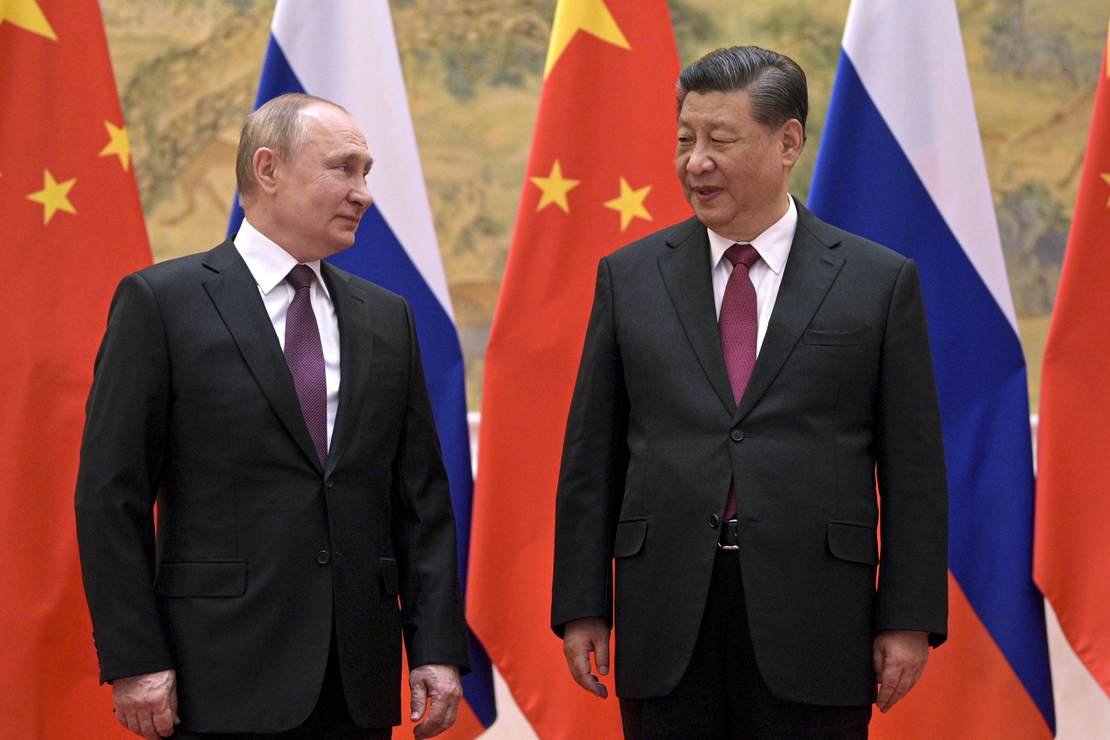
The “no limits” partnership that was announced in February appears to have found a limit.
China’s stubbornness may help explain why Putin has been so determined to seize Sievierodonetsk despite the fact that it’s not hugely strategically important. He doesn’t just want a victory to show off to his constituents, he wants a victory to show off to his new banker. Progress on the ground after three months of flailing might unlock Chinese economic support. Xi Jinping wouldn’t want to pour money into a losing effort at the hands of the west, but a winning effort…
Putin shouldn’t get his hopes up, though. The main impediment to Chinese support for Russia isn’t the state of the battlefield, it’s the state of the Chinese economy and the reality of western sanctions.
Moscow has on at least two occasions pressed Beijing to offer new forms of economic support — exchanges that one Chinese official described as “tense.” The officials familiar with the talks spoke on the condition of anonymity because of the matter’s sensitivity…
Russia has not requested “weapons and ammunition” to support its war, the Chinese officials said, but declined to comment on whether Russia had requested other items that could be used in military operations including technology and supplies…
China has balked at helping Russia evade sanctions, fearing the United States and it allies could cut China off from critical technology, including semiconductors and aerospace equipment, as well as target its financial system, a Beijing official said. Shipments of high-end Chinese technology to Russia — including smartphones, laptops and telecommunications equipment — have plummeted since the war began.
That’s a problem for Russia, which has relied heavily in the past on American technology to outfit their weapons and electronics. Now that the supply has been choked off, they’re so strapped to keep their war machine running that they’ve begun to repurpose semiconductors from dishwashers and other appliances. China is a major producer of semiconductors, as it happens, and could help fill the gap for Moscow. But replenishing Russia’s stocks would risk western sanctions on Beijing.
And Beijing can’t afford western sanctions right now due in part to their “zero COVID” foolishness. The Chinese economy has been ravaged by protracted lockdowns: Retail sales dropped by more than 10 percent year over year in April, far worse than analysts’ expectations, and unemployment reached its highest level since the start of the pandemic. Economic activity has slowed for three straight months as western analysts have begun revising their projections for China’s GDP this year downward. All of that comes at an anxious time for Xi, as he hopes and expects to be reelected to another term as CCP leader this fall. He’s worried enough to have just announced a 33-point stimulus plan to speed the economic recovery.
READ RELATED: Davos Switzerland, Where Our 'Betters' Are Deciding Our Future
They’re facing a perfect storm of recessionary pressures, writes Clark Packard, some self-inflicted, others unavoidable. Endless lockdowns plus overregulation of the vibrant Chinese tech industry plus the debt bubble in Chinese real estate plus global supply shocks from the war in Ukraine make for an ugly near-term outlook. Not a moment to go all-in with an economic weakling like Russia in defiance of the powerhouse west, in other words.
Before the war, Xi might have called the west’s bluff and aided Russia anyway, gambling that the U.S. and EU wouldn’t have the stones to damage their own economies at a moment of global economic pain by sanctioning China. But after watching them scramble to cut off Russian oil despite the effect that would have on gas prices, he seems to have decided not to call our bluff. Jake Sullivan, Biden’s national security advisor, held an “intense” seven-hour meeting with the Chinese in mid-March warning them not to test western resolve by coming to Russia’s rescue. It seems that warning was heeded.
There’s another complication for Beijing. Ditching “zero COVID” and reopening the economy aggressively would solve some of China’s problems but it’s not a realistic solution, politically or epidemiologically. China’s health-care system couldn’t handle a nationwide outbreak of Omicron among 1.3 billion people, many of whom remain unvaccinated (or vaccinated with poor vaccines) and lack natural immunity. And Xi fears that abandoning “zero COVID” would amount to an admission of error in how to handle the pandemic, essentially acknowledging that the west had the better approach. So China won’t get rid of “zero COVID.” To the contrary, it looks like it’s here to stay:
A network of tens of thousands of lab testing booths are being set up across the country’s largest and most economically vital cities, with the goal of having residents always just a 15 minute walk away from a swabbing point. The infrastructure will allow cities like Beijing, Shanghai, tech hub Shenzhen and e-commerce heartland Hangzhou to require tests as often as every 48 hours, with negative results needed to get on the subway or even enter a store.
Researchers at China’s prestigious Tsinghua University designed robots to automate the swabbing process. Companies are dangling monthly salaries exceeding 10,000 yuan ($1,487) to recruit staff for the white, modular buildings that feature either sliding windows reminiscent of an amusement park entry point or two circular holes, chest-high, that allow workers to slip out gloved hands for swabbing purposes.
It’ll be sporadic lockdowns unto eternity in China, which I suppose is fitting for a totalitarian state. Expect global supply chain disruptions to last, uh, forever.
In the meantime, however, Beijing may be the west’s best bet to help bring the war to a conclusion in the near term. A Chinese official told WaPo that “the war in Ukraine had dragged on much longer than expected, and Beijing has made clear to Moscow that an end to the conflict would allow China more leeway to oppose sanctions and grow business ties inside Russia in the wake of the exodus of foreign firms.” I doubt the Ukrainians are prepared to cede the Donbas now that they’re flush with western heavy weapons but China wanting the war to end soon is the closest thing to good news we’ve had in awhile.
Source:






